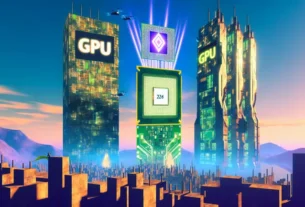Sam Altman’s Ouster: The Inside Story of OpenAI’s Leadership Drama
The Shock Heard Around Silicon Valley
In the world of artificial intelligence, few names carry as much weight as Sam Altman. As CEO of OpenAI, Altman has been instrumental in steering the company to the forefront of AI innovation. That’s what made the sudden news of his ouster in late 2023 so shocking. The surprising removal of the company’s co-founder and figurehead not only set off internal seismic activity at OpenAI but also rippled across the tech ecosystem.
Karen Hao’s extensive reporting in *The Atlantic* uncovers the intricate web of motivations, ethical conflicts, and strategic disagreements that led to one of the most significant leadership dramas in modern tech. While many assumed it was a boardroom battle over power, the truth appears far more nuanced.
OpenAI’s Mission—and Its Tensions
OpenAI was created with a distinct purpose: to ensure artificial general intelligence (AGI) benefits all of humanity. But by 2023, cracks started to show in how the company interpreted that mission. On one side were those driven by caution—who pressed for AI safety, transparency, and slower development. On the other were proponents of rapid progress and continued commercial expansion.
Altman, ambitious and charismatic, was seen by many within OpenAI as leaning toward the latter. His leadership was marked by bold moves, such as partnering with Microsoft and launching viral AI products like ChatGPT. These actions were profitable and greatly increased OpenAI’s visibility and global impact, but they rubbed some of his colleagues the wrong way.
- Internal stakeholders feared that commercial priorities could undermine foundational safety research
- Concerns grew that Altman had obtained too much influence within the organization
- The board began questioning whether OpenAI was staying true to its nonprofit charter
The Secretive Coup
By November 2023, the tension had reached a boiling point. Without public warning, OpenAI’s board decided to remove Sam Altman from his position. The move blindsided even top executives within the company, some of whom were reportedly informed just minutes before the official announcement went out. According to Hao, the removal wasn’t just abrupt—it was executed in secrecy because the board feared interference.
The board’s rationale was centered on Altman’s alleged lack of “candor.” This cryptic explanation only fueled speculation. Was it a question of transparency? Ethics? Or a hidden project that crossed boundaries?
Notably, GPT-4 had already demonstrated the immense risks and potential of advanced AI systems. The board may have feared that OpenAI, under Altman, was veering too close to unregulated AGI development without adequate safety protocols.
Employee Rebellion and the Return of Altman
Following Altman’s ouster, chaos unfolded within OpenAI. Employees were not just surprised—they were furious. Nearly all of OpenAI’s staff signed a letter threatening to leave unless Altman was reinstated. It wasn’t just loyalty that drove this movement—it was a belief in Altman’s vision for the future of AI.
- The rebellion was led by senior researchers and engineers
- Staff accused the board of undermining democratic governance
- Microsoft, a key partner, openly voiced its support for Altman
Hao’s reporting highlights how this moment became a tipping point for the company’s culture. Employees felt that the nonprofit charter was being weaponized to halt progress, while the board feared losing control to a rapidly growing executive presence.
Ultimately, the pressure worked. Within days, Altman returned—his power and influence arguably stronger than before. But his brief ouster left lasting scars on the company’s identity.
Deeper Questions About AI Governance
Altman’s temporary removal underscored a bigger dilemma in AI: Who has the moral authority—and the technical competence—to oversee the development of AGI? OpenAI’s structure had long been unorthodox, combining a nonprofit governing board with a capped-profit entity designed to scale innovation responsibly. But the governance model was starting to fray under the pressure of rapid progress.
Karen Hao’s article raises a critical point: AI is no longer just a technical field—it’s political, social, and existential. And the governing bodies tasked with supervising it must evolve to meet the scale of the challenge.
Key Takeaways on OpenAI’s Internal Conflict:
- The balance between safety and innovation remains difficult to achieve
- Altman’s leadership style clashed with the board’s cautious framework
- The public nature of the drama damaged OpenAI’s credibility but also ignited global discussion about AI ethics
Legacy and the Road Ahead
Despite returning to his role as CEO, Altman’s experience at OpenAI serves as a profound case study on governance in the age of transformative technology. His ouster and return were more than dramatic headlines—they exposed a structural weakness in how the tech industry manages innovation that has the potential to transform (or endanger) humanity.
OpenAI must now rebuild trust—internally and externally. The organization faces immense scrutiny from policymakers, researchers, and partners. Moving forward, OpenAI will need to create a more transparent and resilient governance model, one that truly balances profit with principle.
Looking forward, success will depend on:
- Clearer oversight of executive actions
- Stronger alignment between board values and company operations
- Global collaboration on AGI safety standards
Conclusion: A Wake-Up Call for the AI Industry
The leadership drama at OpenAI was not just about Sam Altman. It was a mirror held up to the entire AI industry, highlighting the urgency of establishing clearer governance, ethical guardrails, and public accountability. If AI truly is the next epoch in human development, then its creators must answer to more than just shareholders—they must answer to humanity itself.
As Altman resumes his role, all eyes remain fixed on OpenAI. The stakes are higher than ever. While the company may have survived its first identity crisis, the road to safe and equitable innovation has only just begun.
The Sam Altman saga is a story of ambition, ethics, and the future of artificial intelligence—and it’s far from over.



